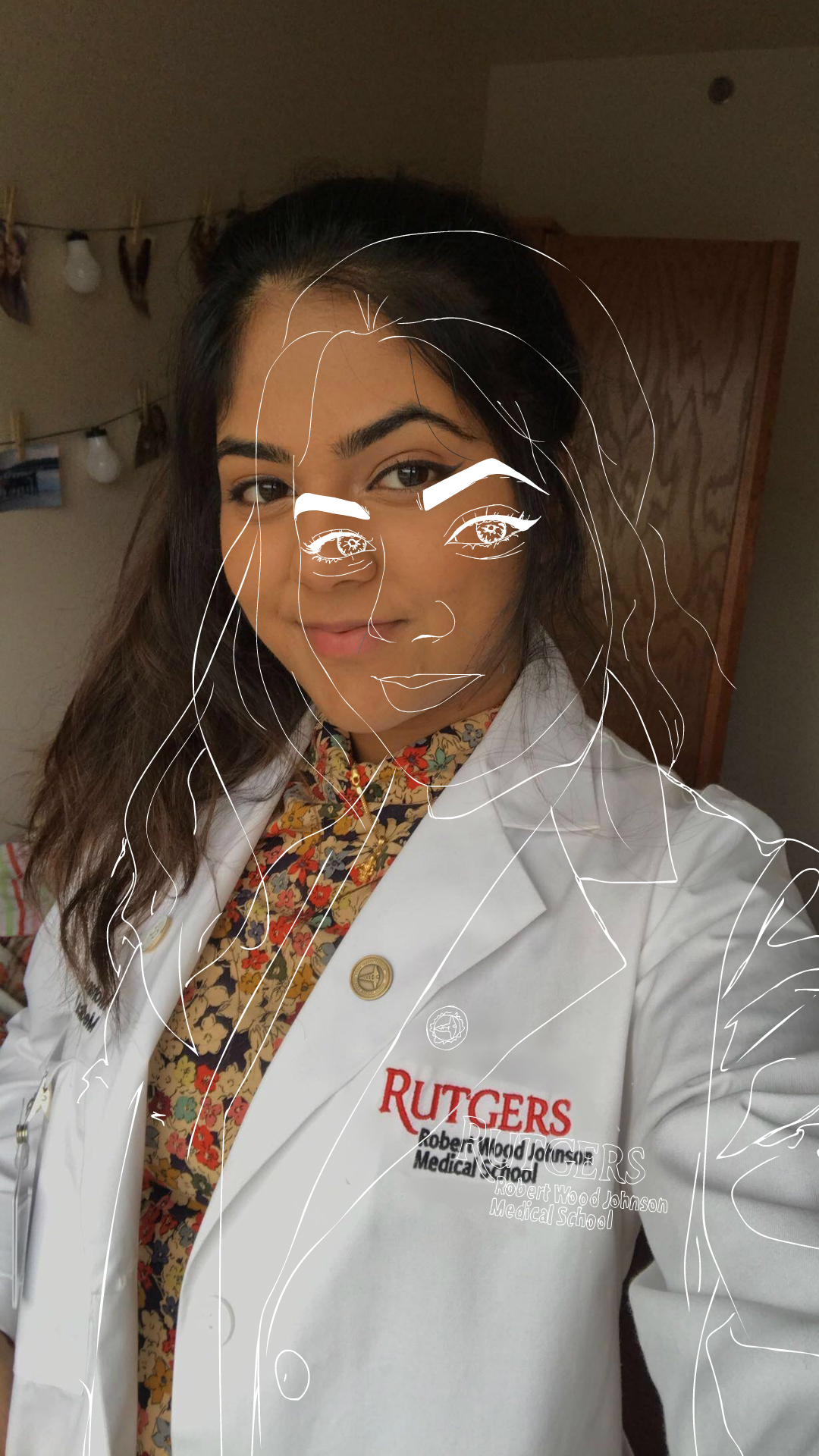“He’s smart and she’s pretty, but I gotta go.” This was a remark that a middle-aged gentleman said to me and my male colleague as he left our workshop on tobacco cessation. I immediately quipped back, “Hey, I’m smart too!” He ignored my reply as he left the room.
Throughout my academic and clinical journey, I have encountered many male patients and even employees who have made unsolicited comments about my appearance along with other inappropriate remarks. When I volunteered in an emergency department in high school, some male patients would ask me to “come a little closer” when I offered them a blanket. When I volunteered at a different emergency department in college, a technician who I initially considered to be a mentor asked me out for drinks. Not only was I clearly underage but he was married and a father of four. Now in those same emergency rooms, I don a short white coat with a hospital badge that has my name and my title as a medical student. I stand alongside women with badges that say registered nurse, physician’s assistant, and physician, and yet, we are still referred to as sweetie, honey, or baby.
One night, I was leading a health education session at a men’s homeless shelter. I saw many faces I recognized from the soup kitchen I frequently volunteered at. I opened the floor to the audience to speak about their individual experiences with smoking. Most people were asking questions and seemed generally engaged in our workshop with a few notable exceptions. Mikey was one of them.
“I have been smoking since I was five years old and now I am 75, and guess what? I love it. I feel great. And I’m never gunna quit. And you know what? I got out of prison yesterday and I couldn’t smoke the last two years, but you know how I’m gunna celebrate? A cigarette.” Mikey said this with a bemused smirk on his face.
At the end of our session, we thanked everyone for their attention. Multiple men said to my partner before leaving, “Thanks for coming in tonight. I learned a lot!” They then walked over to me and said, “I don’t plan on quitting, but you are a pretty gal.”
One of the men who I had spoken to at the soup kitchen a few months prior came up to me and said, “Hey, I remember you! You still look just as cute as you did the last time we talked. Can I take you out sometime?” This was the fourth time he asked me out as he had asked me before at the soup kitchen. I politely declined and rerouted the conversation to the topic of health insurance.
As Mikey was leaving the room my partner urged him, “Just one cigarette less and you’ll have made my day,” to which Mikey smiled politely and responded, “This will be my last one for today.” As I walked to my car and turned the corner, I saw Mikey outside the shelter. He gave me an uncomforting wink, took a drag of his cigarette, and inappropriately asked, “Want one?”
I remember sitting in my car after that event thinking about those remarks and how distinctly they highlighted the difference in perception between me and my male colleague. From the moment I entered the room to the moment I stepped out, I was reduced to my appearance while he was equated to intellect. When I entered the room an hour earlier, my biggest hope was that my audience might reevaluate their habits. When I exited the room, I was hyperaware that my audience saw me, but I wondered if my audience heard me.
I am a petite 21-year-old Bangladeshi-American medical student. I am one of the youngest students in my class and a woman of color in a field that primarily has older white males in positions of power. As the only Bangladeshi American student in my class, and possibly even my school, it is clear to me that I am a minority on multiple levels. With that comes an interminable internal dialogue about my place in medicine.
Situations like these make me feel as though the countless hours I spent studying the material, the assertive tone I use to convey my message, and the hard work I put in to connect with my patients are dismissed in a belittling shadow of female objectification. In a reflection on how difficult it is to inspire patients to make lifestyle changes, my partner wondered how will I become a healer in addition to a doctor? I had the same question as him, but to that, I wonder, will I be taken seriously as a doctor in the first place?
Fortunately, these experiences do not reflect the majority of my clinical encounters, but they do highlight a difference between the treatment of male and female health care professionals. Women in health care are told to ignore comments, remain professional (which often translates to silence), and sometimes even be flattered by unwarranted objectification. If we want our patients to take us seriously, we need to start with the medical community and acknowledge that these struggles exist and are legitimate as opposed to viewing them as gender-borne occupational hazards.
Image credit: Custom drawing by Stephanie Bradli for this Mosaic in Medicine piece.


